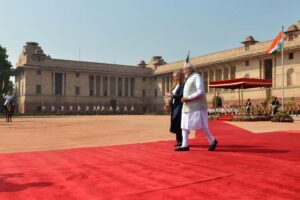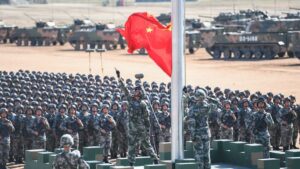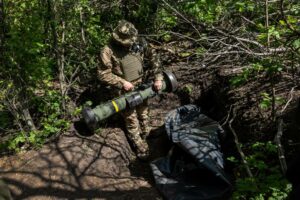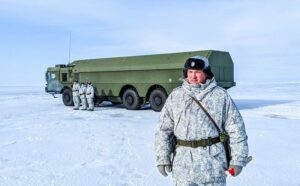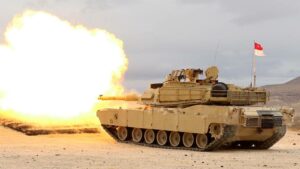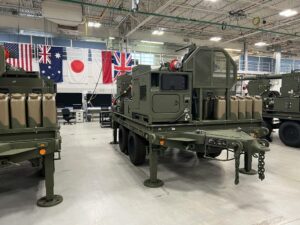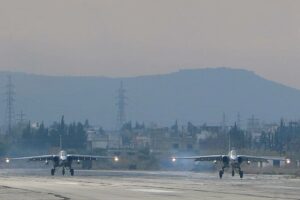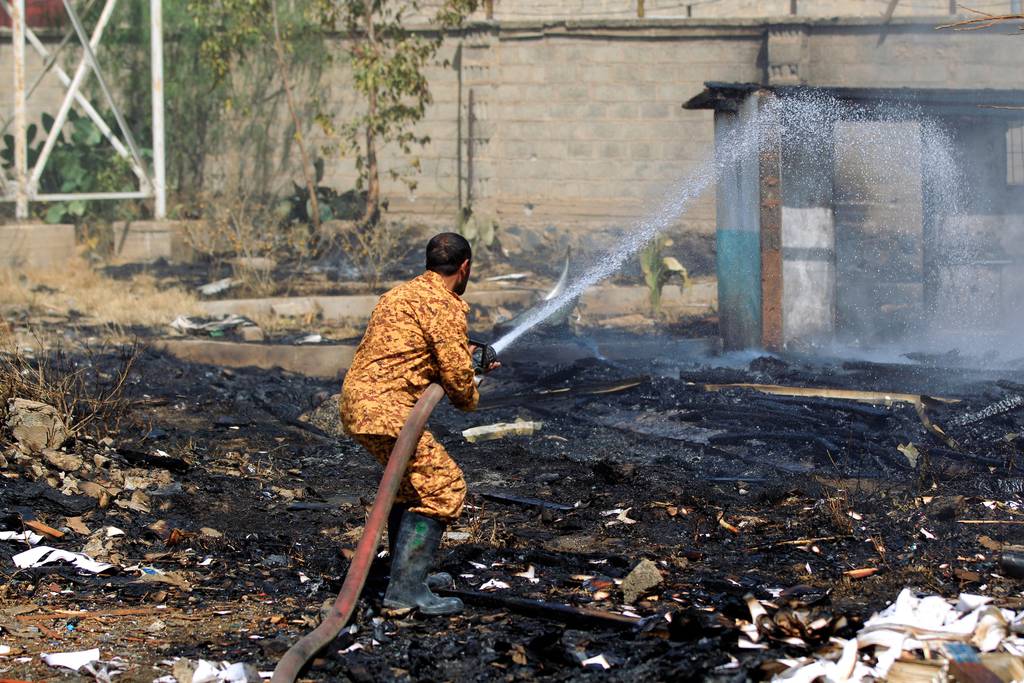
CAIRO — Weapons supplied by the United Kingdom and the United States and used by a Saudi-led coalition fighting in war-torn Yemen killed at least 87 civilians and wounded 136 others in just over a year, a new report said Wednesday.
The report by the Oxfam charity found that the Saudi-led coalition used weapons supplied solely by the U.K. and the U.S. in hundreds of attacks on civilians in Yemen between January 2021 and the end of February 2022. Britain is the second-biggest supplier of weapons to Saudi Arabia, after the U.S.
Yemen’s war began when the Iran-backed Houthis seized the country’s capital, Sanaa, in September 2014 and forced the internationally recognized government into exile. A Saudi-led coalition — armed with U.S. and U.K. weaponry and intelligence — entered the war on the side of Yemen’s exiled government in March 2015.
Oxfam’s report comes ahead of a legal challenge by the Campaign Against Arms Trade, a group of anti-weapons campaigners, against the U.K. government for supplying weapons used in Yemen’s war. The charity says it provides witness in support of the challenge.
Responding to an inquiry by The Associated Press, a spokesperson for Britain’s Department for International Trade said it operates “one of the most robust and transparent export control regimes in the world.”
“We consider all our export applications thoroughly against a strict risk assessment framework and keep all licenses under careful and continual review as standard,” the spokesperson said.
A spokesman for the Saudi-led coalition was not immediately available for comment.
The Stockholm International Peace Research Institute, a Swedish think tank, tracks major arms transfer. Examples of deliveries or orders made for 2021, supplied by the U.S. to Saudi Arabia, include GBU-39 guided bombs; Harpoon Block 2 anti-ship missiles; and Paveway guided bombs. The Meteor beyond-visual-range air-to-air missile is among the major weapons sold by the U.K. to Saudi Arabia.
The court battle by the anti-weapons campaigners is years old. The Court of Appeal in London ruled in 2019 that the British government acted unlawfully in selling weapons to Saudi Arabia that were used in the Yemen war. The court, however, did not order a halt to the exports to the Gulf Arab kingdom.
Oxfam’s report portrayed a grim picture.
Martin Butcher, Oxfam’s policy adviser on arms and conflict and author of the report, said they analyzed 1,727 attacks on civilians in Yemen’s war during the 14-month period, with the Saudi-led coalition — using weapons supplied by the U.K. and the U.S. — being responsible for a quarter of all attacks.
“It’s just so relentless,” Butcher told AP. “People just find it so hard to escape the violence and the killing.”
The 43-page report said the analyzed attacks killed at least 839 civilians and wounded 1,775 others. Of all the attacks by the Saudi-led coalition during the 14-month period, airstrikes alone killed at least 87 civilians and wounded 136, the report found. The rest of the attacks were artillery, missiles and drone attacks, as well as from land mines, road bombs and light arms.
The report found that airstrikes and artillery attacks involved cluster munitions, “weapons banned by international convention and customary law.”
The charity counted at least 19 attacks by the coalition on health facilities and ambulances. It said 293 airstrikes forced people to flee their homes.
All parties to the war have been accused of killing and wounding civilians in Yemen’s eight-year conflict. Overall, the war has killed more than 150,000 people, including over 14,500 civilians, according to The Armed Conflict Location & Event Data Project. It has also created one of the world’s worst humanitarian crises.
Butcher called on the U.K. government to “immediately stop selling arms to Saudi Arabia for use in Yemen,” and to promote a permanent cease-fire and negotiations for a long-term settlement through its position as a member of the U.N. Security Council.
“They’ve [the government] really been not only arming Saudi Arabia, but also very reluctant to use their position in the Security Council to push for peace,” he said.
Chris Martin with Defense News contributed to this report.
- SEO Powered Content & PR Distribution. Get Amplified Today.
- Platoblockchain. Web3 Metaverse Intelligence. Knowledge Amplified. Access Here.
- Source: https://www.defensenews.com/global/mideast-africa/2023/01/11/arms-supplied-by-us-uk-killed-civilians-in-yemen-report-finds/
- 000
- 1
- 10
- 2014
- 2016
- 2019
- 2021
- 2022
- 70
- a
- According
- accused
- across
- activists
- After
- against
- ahead
- air-to-air
- All
- alone
- Ambulances
- among
- and
- appeal
- applications
- Arab
- armed
- assessment
- associated
- Attacks
- author
- available
- awareness
- banned
- Battle
- began
- being
- between
- Block
- BRIDGE
- britain
- British
- called
- Campaign
- capital
- careful
- challenge
- Charity
- civilians
- Cluster
- comment
- conflict
- Consider
- contributed
- control
- Convention
- Council
- country’s
- Court
- created
- dangers
- data
- Defense
- Deliveries
- Department
- DID
- district
- Downing
- drone
- during
- entered
- Ether (ETH)
- Event
- examples
- export
- exports
- fighting
- Find
- finds
- found
- Framework
- from
- Government
- grim
- Group
- Hard
- Health
- Homes
- However
- HTTPS
- Humanitarian
- Hundreds
- image
- images
- immediately
- in
- include
- Including
- Institute
- Intelligence
- International
- International Trade
- internationally
- involved
- IT
- January
- January 2021
- Keep
- Khaled
- Kingdom
- Land
- Law
- Legal
- licenses
- light
- Lives
- location
- London
- long-term
- made
- major
- March
- Martin
- member
- message
- mines
- missiles
- more
- most
- negotiations
- New
- news
- Old
- ONE
- operates
- order
- orders
- Others
- overall
- parties
- People
- period
- permanent
- picture
- plato
- Plato Data Intelligence
- PlatoData
- policy
- portrayed
- position
- press
- project
- promote
- protest
- provides
- Push
- Quarter
- recognized
- relentless
- replica
- report
- research
- responsible
- REST
- review
- Risk
- risk assessment
- road
- robust
- Said
- sales
- Saudi
- Saudi Arabia
- security
- seized
- Selling
- September
- settlement
- So
- sold
- spokesperson
- standard
- Stop
- street
- strict
- supplied
- supplying
- support
- Swedish
- team
- The
- the United Kingdom
- the world
- their
- think tank
- thoroughly
- Through
- to
- toward
- trade
- transfer
- transparent
- U.K.
- U.K. government
- u.s.
- Uk
- under
- United
- United Kingdom
- us
- use
- via
- war
- Weapons
- Wednesday
- witness
- works
- world
- world’s
- Worst
- year
- years
- zephyrnet

